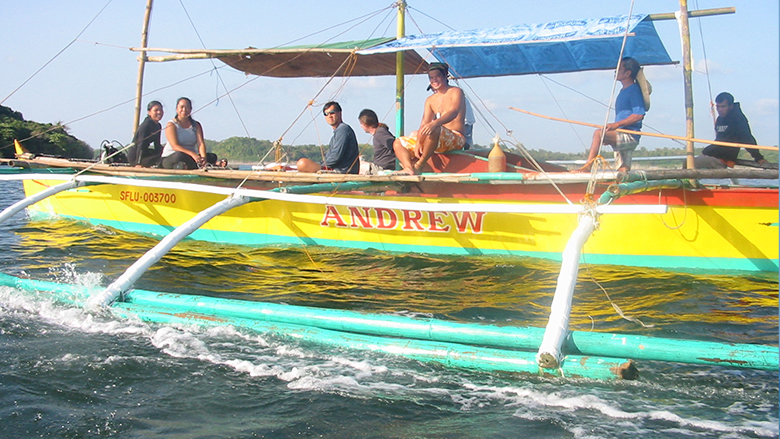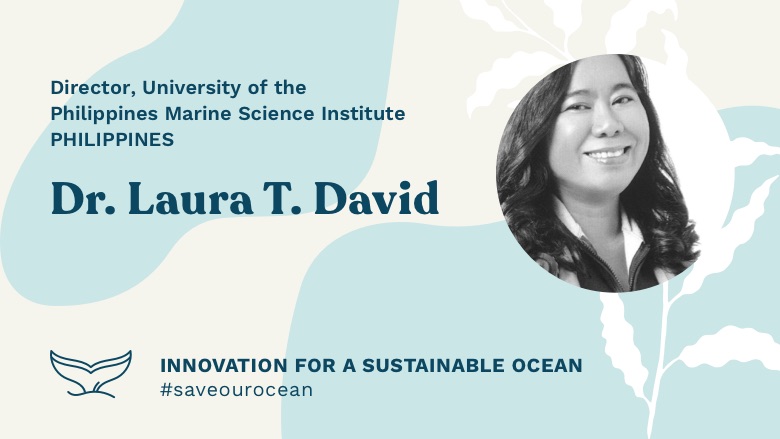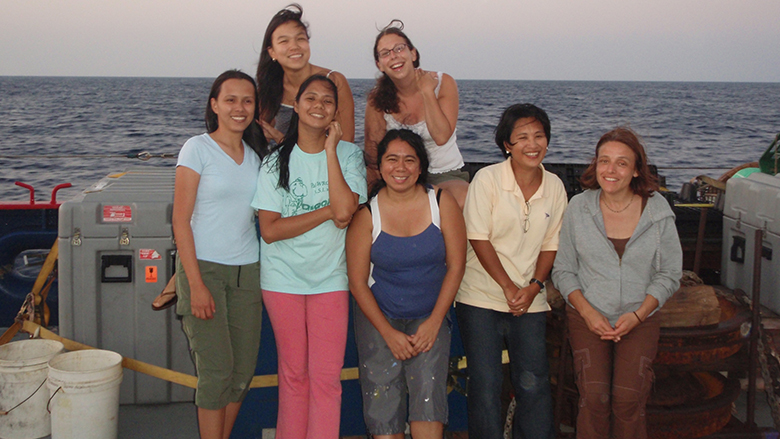How does your work help to promote and maintain ocean health?
The University of the Philippines Marine Science Institute (UPMSI) pursues research, teaching, and extension work in marine biology, marine chemistry, physical oceanography, marine geology, and marine biotechnology. My laboratory studies how best to use the resources of the ocean, such as ocean energy and smart mariculture, while monitoring change so we can figure out how to best take care of the marine environment and minimize impact.
I have also worked with the World Bank on two projects. Internationally, I was part of the Remote Sensing Working Group of the Coral Reef Targeted Research and Capacity Building for Management Program. The group worked to improve the efficiency of coral reef management. Locally, I was part of a study on the climate vulnerability of Sorsogon province. We engaged the local government and conducted bio-physical and socio-economic analysis to highlight which sites in the province were most vulnerable to climate change, and we identified potential approaches to adaptation. The study paved the way for further development of climate change vulnerability assessment tools for the Philippines.
What do you see as the biggest challenges facing our oceans in 2020?
The biggest challenge is still knowledge and understanding. How do we help manage something that is still mostly unknown? How can we nurture something which we do not really yet understand? So I think the biggest challenge, aside from the need for more research, is communicating the knowledge generated. In papers, in books, and in plays and art. The connectivity of humanity to the oceans must become organic.
What does this year’s World Oceans Day theme, ‘Innovation for a Sustainable Ocean’, mean to you?
It means integrating the presence, impact of, and impact to the oceans in all human development planning. We can no longer ignore that the ocean resources are finite. Likewise, decisions made in the development of human settlements that neglect ocean-related hazards, like storm surges and tsunamis, should no longer continue. We have to accept that the ocean environment is changing, such as the increase in temperature and sea level rise, and adapt to these changes.
What message would you like everyone to hear on World Oceans Day 2020?
Younger generations already know that the world is interconnected through shared online experiences. I think the recent pandemic has also made it clear that the world is an interconnected, shared space. Harness these experiences. We can come up with better solutions, now that we understand that we are all in the same boat.



